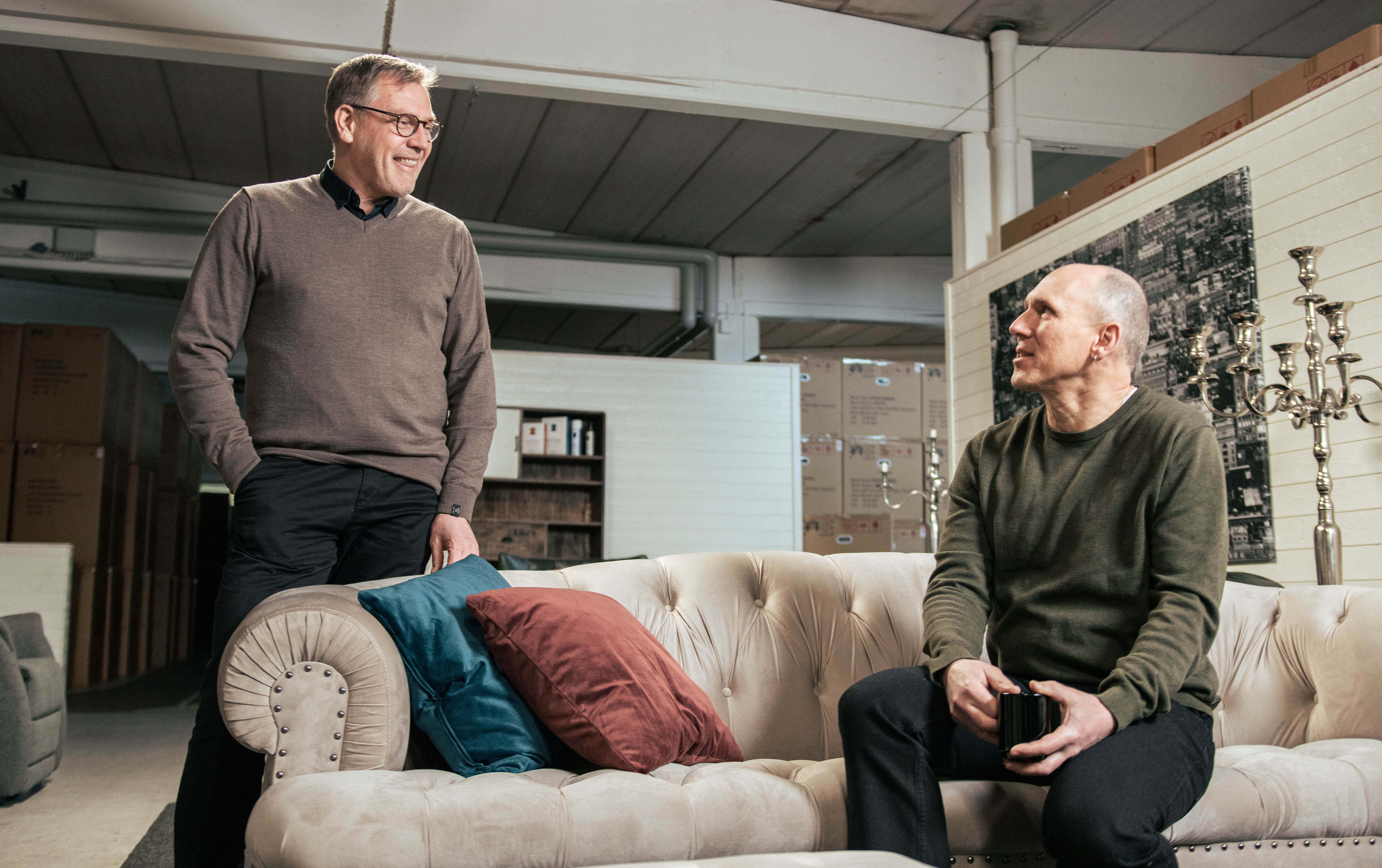Researchers inspire entrepreneurs toward social innovation

Bernt-Arne Winberg from Hagagruppen together with Duncan Levinsohn from Jönköping International Business School at Jönköping University.
How do you create sustainable businesses? Duncan Levinsohn is a lecturer in business administration at Jönköping International Business School at Jönköping University. With his research, he wants to inspire business leaders and students to take new approaches toward social innovation and spread good examples of how companies can work with sustainability. One company he has followed for several years is Haga Group’s work with social sustainability.
"Social innovations are new ideas that meet social needs, create social relationships, and form new collaborations. These innovations can be products, services, or models addressing unmet needs more effectively."
EU-kommissionens innovations- och tillväxtstrategi
Hagagruppen is a retailer in Bottnaryd, Sweden, that sells sofas and armchairs. Duncan believes that Hagagruppen is a good example of how a company can use its resources and take responsibility for social and environmental values both in the local area and with foreign suppliers.
“As a researcher in sustainability issues, I think it is important that entrepreneurs dare to stand out and follow their hearts. If you dare to run your business from more dimensions than just good profitability, entrepreneurship can be incredibly exciting,” says Duncan.
More than financial viability
Duncan has conducted regular in-depth interviews with the company and followed the process from initial cautious experimentation by the management team to following a clear line with more confidence and pride.
“In traditional companies, there is usually an invisible and unspoken goal of prioritising profit at all times. It’s hard to change something you are not aware of, so it's only when you have the courage to identify and question this part of the company that you can make major changes,” says Duncan.
Contributing to a good society
The staff at Hagagruppen comes from different countries, and many started working there when they had first moved to Sweden. Bernt-Arne Winberg, who runs the company with his wife Gerd, says that they try to adapt the work tasks to suit the individual employee. The goal is to use 10 percent of its profits to help build a good society, according to the company's ambition for what a good society looks like.
“We invest in associations in Bottnaryd and in aid activities in developing countries,” says Bernt-Arne. The environmental issue is also important, and thus they have long-term partnerships with fewer suppliers and require their employees to have good working conditions and sustainable materials.
As a researcher, Duncan helps to spread the Hagagruppen's activities as an example of how to work and has, among other things, allowed Bernt-Arne to meet students.
“I realise that his approach to entrepreneurship sometimes provokes students because it is not what is expected. Small businesses have unique opportunities but also face specific challenges. I want to inspire students to seize the opportunities, and equip them to deal with the challenges,” says Duncan.
Forum for Social Innovation Sweden (MSI)
Duncan Levinsohn's research is an example of the social innovations JU is involved in through the Forum for Social Innovation Sweden (MSI). MSI is a national knowledge node for social innovation and social entrepreneurship. The work is conducted in close cooperation between academia, business, public and non-profit actors and currently six universities are involved in the initiative: Malmö University, Luleå University of Technology, Umeå University, Örebro University, Stockholm University and Jönköping University.
